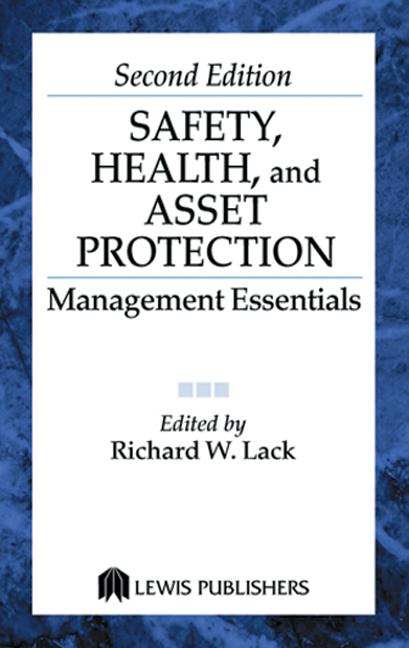Weekly news round-up

A deadly welding explosion in Lousiana, noise-induced hearing loss that goes beyond the workplace and a new way to help veterans who may have mesothelioma were among the top stories featured on ISHN.com this week.
A FairWarning story
Battling menthol restrictions, R.J. Reynolds reaches out to Sharpton, other black leaders
Tobacco giant R.J. Reynolds, the top seller of the menthol cigarettes favored by most black smokers, is seizing on the hot button issue of police harassment of blacks to counter efforts by public health advocates to restrict menthol sales.
Phone triage could help veterans with mesothelioma
A plan to offer triage by telephone to veterans suspected of having malignant mesothelioma may enable them to access expert mesothelioma advice faster, potentially improving their long-term outcomes. In a newly published article in the Journal of Surgical Research, surgeons with VA Boston Healthcare System detail their experience with telephone triage of suspected malignant mesothelioma patients and explain how the system could help veterans around the country with other rare diseases.
OSHA standards: to repeal or not to repeal
That is one of the questions we asked ISHN readers
Will OSHA change under the Trump administration? (Should OSHA change under the Trump administration?) Should some standards be repealed? Will funding for the agency’s enforcement and voluntary protection programs decrease? Increase? Should OSHA be abolished and its duties handled by state agencies?
OSHA revises requirements for Outreach Training Program instructors
OSHA has revised the requirements for authorized trainers in its Outreach Training Program, updating and clarifying student contact hours, replacement card procedures, the Trainer Code of Conduct, and more.
CSB investigators headed to Packaging Corp. explosion scene in La.
A three-person investigative team from the U.S. Chemical Safety Board (CSB) is deploying to the scene of an incident that killed three workers and reportedly injured seven on Wednesday, February 8 at the Packaging Corporation of America (PCA) plant in DeRidder, Louisiana.
China’s workplace accident rate declines
The Chinese government’s efforts to crackdown on unsafe workplaces appears to be having an effect, with the State Administration of Work Safety (SAWS) reporting a 24.7 percent decrease in occupational accidents over the past year.
AIHA to hold Congressional briefing on silica rule
Follow the briefing live on Twitter at #SilicaBriefing
The American Industrial Hygiene Association (AIHA®) will hold a congressional briefing on Capitol Hill Feb. 15 that will focus on OSHA’s silica rule. The event, which will be held from 10:00 to 11:00 a.m. ET in room 1540-A in the Longworth House Office Building, will also serve as a case study of the importance of worker health and safety.
Md. bill would address factory farm pollution
Maryland state senator Richard S. Madaleno, Jr (D-District 18) has introduced a measure calling for stricter monitoring of air pollutants emitted by factory farms, also known as Concentrated Animal Feeding Operations (CAFOs).
We’re blinded by compliance bias
This outdated thinking is dead wrong
Dan Markiewicz, MS, CIH, CSP, CHMM
Compliance bias is the belief that U.S. government mandates such as OSHA regulations are sufficient for most organizations to achieve injury and illness prevention objectives. This bias is outdated and dead wrong.
OSHA website is frozen in time
The webpage on which OSHA posts information about its ongoing activities has not seen any new updates since Jan. 19, 2017 – the day before President Donald Trump’s inauguration.
Early cancer diagnosis saves lives, cuts treatment costs
Global cost = $1.16 trillion
New guidance from the World Health Organization (WHO), aims to improve the chances of survival for people living with cancer by ensuring that health services can focus on diagnosing and treating the disease earlier.
Noise-related hearing loss not limited to work exposure
Unless your hearing is tested, it’s really hard to know if it’s damaged. That’s the message of a recent Centers for Disease Control and Prevention (CDC) survey that found about one in four U.S. adults who say their hearing is good or excellent actually have hearing damage. Now the latest CDC Vital Signs report shows that much of this damage is from loud sounds encountered during everyday activities at home and in the community.
Residents’ long hours may be reinstated
A proposal to roll back work hour limits for medical residents has drawn an angry response from safety advocates, who say longer hours lead to more errors, endangering the safety of both residents and the patients they care for.
Tenn. truck driver declared a hazard after alcohol-related incidents
The U.S. Department of Transportation’s Federal Motor Carrier Safety Administration (FMCSA) has declared Tennessee-licensed truck driver Eric Ronald Scott to be an imminent hazard to public safety and has ordered him not to operate any commercial motor vehicle (CMV) in interstate commerce. Scott was served the federal order on January 18, 2017.
Seriously, walking 10,000 steps every day?
Walking from Maine to Colorado isn’t for everyone
You probably know that walking 10,000 steps a day is the new “magic metric” for the health-conscious. Ten years ago if you asked someone how many steps a day they should walk, you’d get a shoulder shrug. Nobody counted steps.
7 healthy habits that could save billions in Medicare costs
More than $41 billion a year in Medicare costs could be saved if all beneficiaries achieved ideal levels for five to seven heart-healthy habits to reduce cardiovascular risk, according to new research in Journal of the American Heart Association, the Open Access Journal of the American Heart Association (AHA)/American Stroke Association.
A Union of Concerned Scientists blog post
President Trump just put America’s workers at risk
Every day, men and women across this country go to work with the expectation that they will come back to their homes and families at the end of the day—healthy and in one piece.
An expert compares nanotechnology to radioactivity
A leading European scientist says it’s “quite urgent to understand the exact mechanisms of nanotoxicity and make a classification depending on the mechanism.” That warning from Dr. Vladimir Baulin of the University Rovira i Virgili in Tarragona, Spain comes with a reminder that radioactivity or x-rays “entered our lives the same way,” but that it took some time before researchers understood how they affected living organisms.
Looking for a reprint of this article?
From high-res PDFs to custom plaques, order your copy today!




